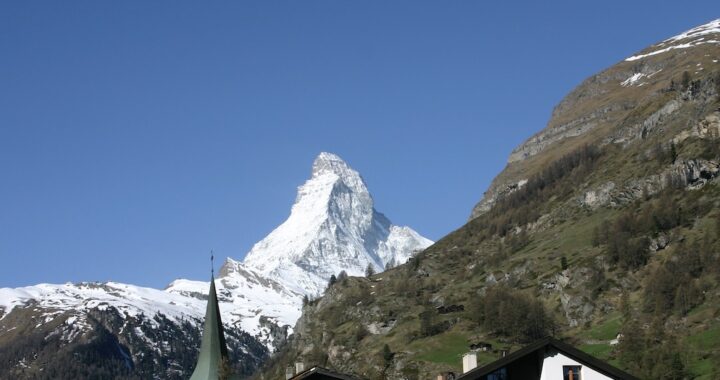 Since 1919, Armistice Day, as it is still called in France, has been celebrated on November 11, symbolizing the end of WWI. In 1954, the US changed Armistice Day to Veterans Day to honor US veterans and victims of all wars. Commonwealth countries refer to it as Poppy Day in association with the red poppies that flowered over the churned up battlefields and trenches of Belgium and France. The image was immortalized In Flanders Field, one of the most memorable war poems of all time.
Since 1919, Armistice Day, as it is still called in France, has been celebrated on November 11, symbolizing the end of WWI. In 1954, the US changed Armistice Day to Veterans Day to honor US veterans and victims of all wars. Commonwealth countries refer to it as Poppy Day in association with the red poppies that flowered over the churned up battlefields and trenches of Belgium and France. The image was immortalized In Flanders Field, one of the most memorable war poems of all time.
Written by the Canadian physician, Lieutenant-Colonel John McCrae, as he watched his friend die in the horrible fighting around Ypres in the Belgium Flanders.
The line resonates still today.« If ye break faith with us who die, we shall not sleep.”
The armistice, signed by Germany and the Allies, brought an end to World War I and went into effect on the eleventh hour of the eleventh day of the eleventh month in 1918. Though hostilities continued in some areas, Nov. 11, 1918, is regarded the date commemorating the end of “the war to end all wars.” A two minute silence is traditionally held at 11 o’clock on both Remembrance Day and Remembrance Sunday.
On June 28, 1919, what is known as « The Great War” officially ended with the signing of the Treaty of Versailles at the Palace of Versailles in Versailles, France.
This week as I helped my international students prepare for their history exam about the intricacies of Treaty of Versailles, I understood the challenge facing leaders – Wilson, Clemenceau, Lloyd George – as they attempted to draw up a fair plan to assure future peace. Of course, in hindsight, most historians agree that the reparations for Germany were too harsh and lead to the emergence of Nazism and WWII.
It is hard for anyone today to comprehend the magnitude of WWI.
- More than 65,000 million men from 30 different countries fought on land, air, and sea in the first world war, which took place predominantly in Europe.
- On the Western Front, men fought in nearly 100,000 kilometers of trenches where the average life expectancy was 6 weeks.

- 11% of French population was killed or wounded.
- Although the US was only in the war for about 7 months, 116,000 Americans died.
- With over 16 million deaths and 20 million wounded, WWI ranks among the deadliest conflicts in human history.
The last surviving veterans of WWI died two years ago at the age of 110. My grandfather, Ralph McKinzie, was drafted and shipped to Cherbourg, France where he marched to Germany. While he was abroad the Armistice was signed, though the fighting continued until the spring.
Today living in a Europe without borders, I cannot to fathom how countries, now allies, could have been so embattled. In the early eighties, I was welcomed into the homes and hearts of Germans when I lived in Marburg. Today I work with and teach students hailing from countries of all sides of many conflicts.
The war to end all wars, Did. Not. End. All. Wars.
Whether you call November 11th as Armistice Day, Remembrance Day, Poppy Day or Veterans Day, take a moment to reflect on those who served or continue to serve to assure our democratic freedoms.
As individuals, we may not have the power to end the fighting in the Middle East, stop the genocides in Africa and curtail the violence in Ukraine, but we can bring peace to our own table. Forget that family vengeance, put aside that feud with neighbors, and resolve that conflict in the community. Wherever you live, lay down your guns, open the lines of communication and promote peace. Take time today to consider the human cost of violence and war.
How can you promote peace in your neighborhood?




Peace seems so elusive, sadly. After this terrible year of strife and violence, I wonder if peace is an ideal that will never be realized.
Pat, thanks for taking time to write this one. Too often, I’m afraid, those of us who didn’t “live” history fail to make the connections to keep history from repeating itself. Then we get more wars, and the cycle starts anew. What we should be working toward is peace and understanding. And acceptance!
I couldn’t agree more, Debbie. It begins with acceptance.
AMEN Sista! well said.
Excellent post! May use the song clip for my history class. Great job Pat!
Thanks, Dave. I do hope you will use the clip in your history class. By teaching about the past, may we learn how to live more peacefully together.
Pat, I couldn’t agree with you more! We all need to live the peace we want in this world!
Yes, Barb, we need to walk the talk in our everyday lives.
Pat, I agree, working on peace within our families and communities is an important step for all of us. Unfortunately war has been and will continue to be a reality in our world. Thanks for this lovely reminder that we each need to take responsibility to do what we can to foster peace.
Thanks for covering this topic. I know much more about WW2 than WW1. It’s amazing to read that the oldest veterans passed fairly recently. A good presentation of the information. I hope that your students were enriched by your research and teaching of the material as we blog readers are.
It is only by remembering the past that we can learn from our mistakes. We recently had Eva Schloss, step daughter of Otto Frank, speak to our students. She is one the few survivors of the Holocaust still living. After 4 decades of silence she decided to share her experience because “although we said Auschwitz never again, the same horrors kept happening in other parts of the world.” Her testimony was so powerful and thought provoking.